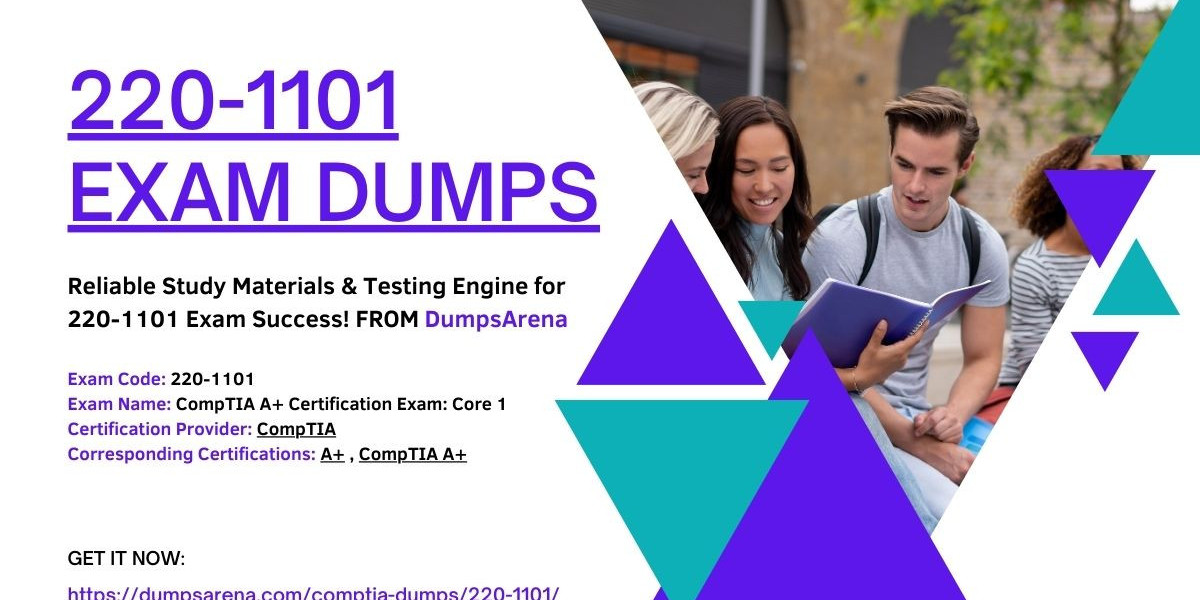In this guide, we’ll outline an ultimate study plan for the CompTIA A+ Core 1 Exam, diving into the exam objectives, effective study techniques, and useful tips for navigating the material. 220-1101 Exam Dumps This roadmap is designed to help you tackle each aspect of the test with confidence, ensuring you’re prepared for both the content and the structure of the exam.
1. Understanding the CompTIA A+ Certification
The CompTIA A+ Certification is highly regarded as the entry-level credential for IT professionals. Designed to validate essential knowledge and skills, it prepares candidates to troubleshoot and resolve issues across a wide range of devices and platforms. This certification is ideal for roles such as IT support specialist, help desk technician, field service technician, and more.
CompTIA A+ Certification involves two exams: the Core 1 (220-1101) and Core 2 (220-1102). Passing both exams is required to earn the certification, but each exam has distinct content domains.220-1101 Exam Dumps PDF While the Core 2 exam focuses on security, software troubleshooting, and operational procedures, the Core 1 exam is more hardware-centered, covering network troubleshooting, hardware, mobile devices, and more.
2. What to Expect on the CompTIA A+ Core 1 Exam (220-1101)
The 220-1101 exam covers five main areas:
Mobile Devices – This domain focuses on configuring, securing, and troubleshooting mobile devices like smartphones, tablets, and laptops. Key areas include connectivity, application support, and hardware features.
Networking – Candidates are expected to understand fundamental networking concepts, including protocols, types of networks, and network hardware.
Hardware – This is one of the largest sections, covering components such as CPUs, motherboards, RAM, power supplies, and peripheral devices.
Virtualization and Cloud Computing – This domain explores the basics of cloud computing and virtualization, topics that have become essential for IT professionals as these technologies grow more popular.
Hardware and Network Troubleshooting – Finally, troubleshooting skills are critical, as IT professionals must know how to diagnose and resolve issues with both hardware and network setups.
The exam includes multiple-choice, drag-and-drop, and performance-based questions. This structure means you not only need theoretical knowledge but also practical experience with IT hardware and networks.
3. Setting Up Your Study Schedule
An effective study plan for the CompTIA A+ Exam requires setting realistic goals, creating a study schedule, and staying committed to the process. 220-1101 Dumps Here’s how to structure your study schedule:
Determine Your Timeline: Decide how long you have until your exam date and calculate how much time you can dedicate each week to studying. For most candidates, six to eight weeks of preparation is ideal, allowing ample time to cover all topics without cramming.
Break Down the Topics: Split the exam objectives into smaller, manageable sections, focusing on one or two domains per week. This approach prevents information overload and allows you to build a solid understanding of each area.
Schedule Regular Review Sessions: Dedicate time each week to review what you’ve learned and revisit areas where you feel less confident. Regular reviews reinforce your understanding and improve long-term retention.
Include Practice Exams: Integrate practice exams into your schedule to assess your progress and identify areas for improvement. Practice exams are invaluable for building test-taking stamina, familiarizing yourself with the question format, and managing exam-day stress.
UPTO 70 % DISCOUNT For Limited Time >>>>> https://dumpsarena.com/comptia-dumps/220-1101/







